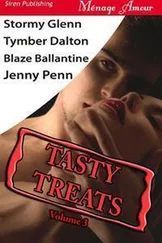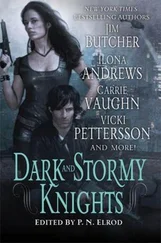He put his chin on both hands and watched her fill the coffeepot and set it on the stove. She opened the box and looked at the chocolates, chose one. He chose another. They tapped them together as if they were champagne glasses and tossed them down. Then she found her sewing box and took his coat and turned it inside out and began to separate the lining from the sleeves. “This one is as bad as the overcoat.” She smiled at him and held up the needle. “Miss Fixer-upper.”
“Where to today? To the sulfur springs at Arlington. People drink the stuff for their health. Vile. I am inured to all the d-d-depravities of human nature. Why do they not do stories of the families living under the Trinity bridge in Dallas? People in tents, little children sleeping in the dirt. Living on stuff from garbage cans.” He slumped back in his chair, watching Jeanine fix his coat. It made him feel quiet and unstuttering. The chair creaked. The dry air had shrunk up the glue and it was about to fall apart. “I drift around the country looking at drought and the soil is like concrete, abandoned farms taken over by cedar, and all they want to hear about is all these people trying to attract t-t-tourism with concrete dinosaurs and rotten-egg water.”
“I would pay a dime to see dinosaur tracks,” said Jeanine. She turned back the cuffs an inch and snipped off the ragged threads and began to stitch them back to the lining.
“Then, my dear, you would love the town of Fairy.” He bent forward to watch her sew his sleeves up again as if she were neatly repairing his very self. “Named for some railroad owner’s daughter. What’s interesting about it is the cemetery. The Fairy Cemetery. I told them to put up some tombstones for Snow White and her dwarf entourage but d-d-do they listen to me? No. Then there are the weddings of all the rich oil people. Murchisons, Hunts.”
“What about ordinary people?” she said. “The ones who haven’t hit oil.”
“Ordinary people getting married?” He laughed heavily. Ha. Ha. Ha. “They have to pay to get their notices in the paper. Irish potatoes, chickens, eggs, and sometimes b-b-banknotes.” He lifted one clasped hand to his eye and peered through it. “Fifty cents to the photographer. We get to go to the big weddings sometimes.”
“Because you get free party favors. Free chocolates.” She threw his coat at him and he caught it up.
“N-no! Oh cold and r-r-rejecting one! Rife with suspicion!” He stood up and put on the coat and shot out his wrists, admiring the sleeves.
“You did! You didn’t buy them, you got them at some Dallas society wedding.”
“You don’t trust men, Jeanine. C-c-common psychological problem. Your father b-b-betrayed you, all men are suspect.”
She got up and crossed her arms. “What is this about my dad?” she said.
He was blank for a moment. “I’m trying to think what I just said. Mouth running but brain not engaged.” He put his finger to his lips. “Ah, your dad was arrested and unfortunately died in, in, ah jail.” He walked over to her and took her hand. She pulled it away. “They never said what for. Wasn’t reported in my paper.” He stared at the floor. Then at her. “I always wondered what for.”
Jeanine didn’t know what to think or what to say. The chocolates suddenly had a dismal and dusty look to them scattered in their brown paper cups. She listened to Bea’s light humming in the parlor across the hall. The wind made the back screen door open and shut, open and shut, bang bang bang.
“For gambling,” she said, finally, and stabbed the needle into her pincushion.
“There!” He snapped his fingers. “They didn’t even give him any medical care, I would bet. Scandalous, the way p-p-people are treated by Texas justice is scandalous. No good making a complaint, either, not with James Allred running things.” She watched as he struggled with himself to say something serious, to utter some genuine and sincere sympathy, some condolence. He made little waving motions as he fought without much conviction against the incessant stream of irony, and silliness, and derision. It was an affliction. He loved it. “Terrible loss,” he said. “Sad. Bitter.”
“I’m not sad and bitter, Milton,” she said. She marched back and forth across the kitchen twice and took an enormous breath of air, slapped both hands on the table and smiled. “See?”
“No, stupid thing to say. Always saying something stupid.” He took her hand again. “I am on the outside of everything, Jenny, and I like it. I am not g-g-good for much else. I am the perfect newspaperman. I would love to be K-K-Kaltenborn, I would love to intone in a deep clear voice that the Reichstag has burnt down or the Hindenburg exploded-Oh the humanity!-that was Herb Morrison. It was spontaneous. He said it on the spot. That will go down through the ages.”
“Milton, you know, maybe you’d better give up on radio.” She smiled at him once more.
“I work the buttons, though. I give airtime to hog callers. But no airtime for me.” He pushed a chair toward her and she sat down again. “How’s that for stimulating the economy? He may sound like a soul tortured in hell but he’s only c-calling hogs and making six bits for doing it on air.”
“Can’t you do anything about your stutter?” Jeanine didn’t know what caused stuttering but she could ask, couldn’t she?
“Yes.” He took another chocolate. “A school in Chicago. Excellent. Costs a lot of money. Saving every penny.” He ate the pecan creme and swallowed. His pale unweathered skin glowed in the dusty evening light and Jeanine heard her mother and Mayme drive up outside. His pinwheel cowlick made it seem as if his face were topped by a kind of toy. “And by God I will go there. And I am going to make it in radio. W-w-wait and see.” He stood up and put on his hat and walked to the door, waved at her mother and sister, turned back and took her by the shoulders and kissed her. “What if I asked you to go to the movies with me?”
“Try me,” she said. “See what happens.”
“What if I inquired about your interest in Fred Astaire and um, let’s see, we could bring our own popcorn?”
“Ask and ye shall receive.”
“What if I p-pressed myself upon you with insistence?”
“I would melt in your arms, Milton.”
In the little parlor Bea lay in a haze of liquid morphine; the pain that radiated from the pin in her broken leg was moderating and she dreamed of going to school again. Where the pretty teacher Miss Callaway would ask her about her day. Would lay out new books for her to read.
At breakfast they looked out at the ridges to the north; the flats below drifted with an early haze like thin smoke. Mingus bluffs rose behind them topped out with oak and cedar and the smoke of the breakfast fire climbed straight into the sky. Everything they said came back to them in a hollow repetition. “Hey!” shouted the boy. The bluffs said hey.
“Hush,” said Everett. He blew smoke away from himself and listened. Then he spit on the end of his cigarette and dropped it.
“Any of them you want particular, Ross?” said Homer.
Ross said, “Yes. She’s a red mare. All red. I want her. She must have got loose from somewhere.”
“Could have,” said Nolan. “Up at Lubbock the dust is drifted so high the stock is walking right over the fences.”
“Try not to hit her,” said Ross.
“All right.”
“I hear them,” Ross said. “Let’s get along.”
The pasture was two thousand acres. It had been recently fenced off with four strands of good wire, cedar posts nine strides apart. The band of feral horses had been there for two years and he had tolerated them but there had been no rain and they had increased more than the grass could bear and the hooves of horses were bad for the soil, tamping and compacting it. They had been joined by loose stock that wandered in from other places. Some of them had the weight and the appearance of Percherons or army remount Thoroughbreds. The April landscape was deceptively green along the slopes because of the cedar and live oak but in the valleys the grass stood in stiff clumps spaced farther and farther apart with every month, with hard dirt in between. The live oaks along the creek banks had lost limbs from drought. They shattered when they struck the ground. The same with the pecans. Another high wind and he would lose half the trees in the pecan flats.
Читать дальше












